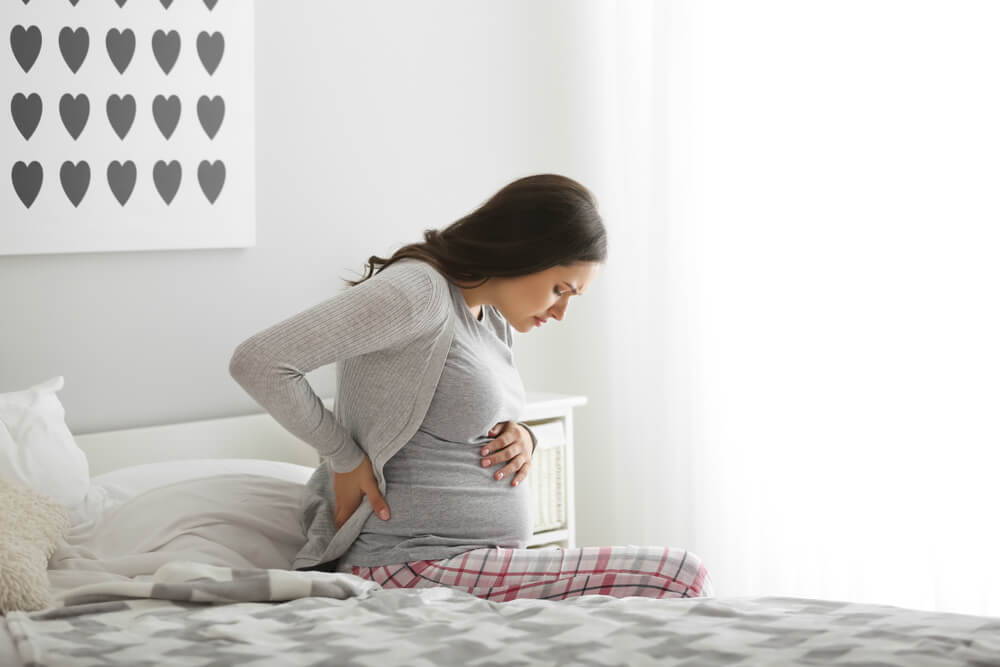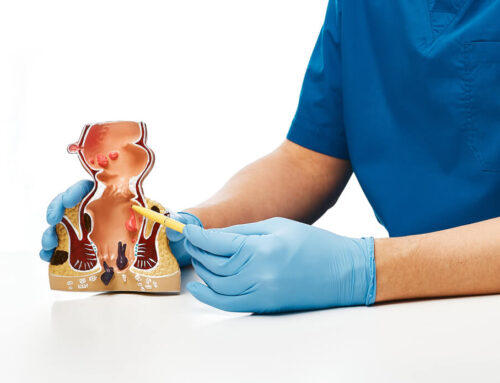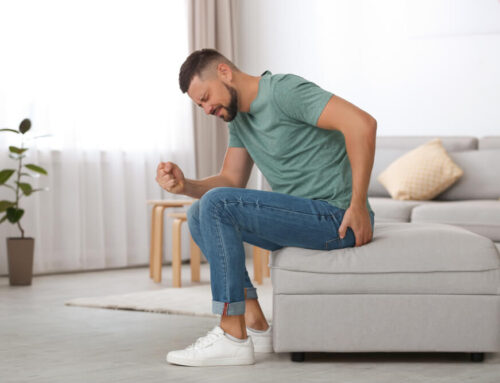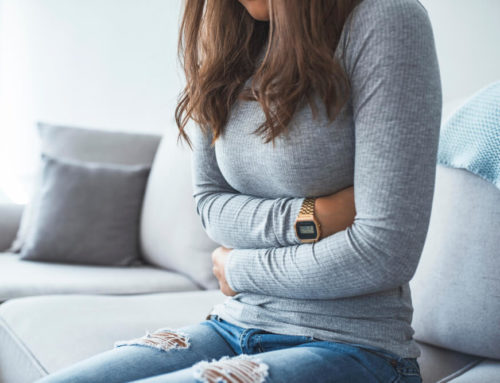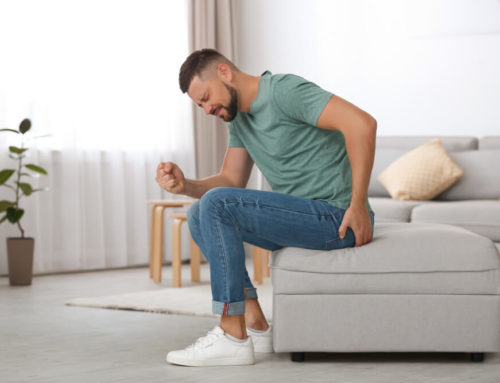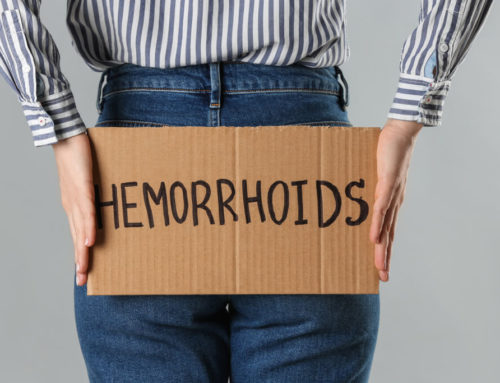Like varicose veins on the legs, enlarged hemorrhoids are a widespread phenomenon during pregnancy, but the cause of their occurrence is somewhat different than in typical hemorrhoidal disease. In this article hemorrhoids specialist in Wellington, FL, will discuss the most common causes, types, and treatments of hemorrhoids during pregnancy.
Our specialist Dr. Eldredge finds that up to 50 percent of women develop hemorrhoids during pregnancy due to the following:
- increased blood volume leading to larger blood vessels,
- pressure on the blood vessels near the anus due to the baby and the growing uterus,
- pressure on blood vessels during childbirth,
- hormonal changes,
- constipation.
What Exactly Causes Pregnancy Hemorrhoids?
During pregnancy, the enlarged uterus puts pressure on the pelvic veins and the so-called inferior vena cava (the largest vein in the body, located in the abdomen, receives blood from the pelvis and both legs). This can slow the return of blood from the lower body, which increases the pressure in the veins of the pelvis and the veins in the legs, causing them to become enlarged.
Constipation is another common problem that can cause hemorrhoids to enlarge. This happens due to straining and prolonged sitting on the toilet if the stool is not regular.
In addition, the increased level of the hormone progesterone during pregnancy causes relaxation of the vein wall, making it sensitive to mechanical stimuli, and bleeding occurs more quickly. Progesterone also slows down the work of the intestines and thus contributes to the development of constipation.
Hemorrhoids and Pregnancy
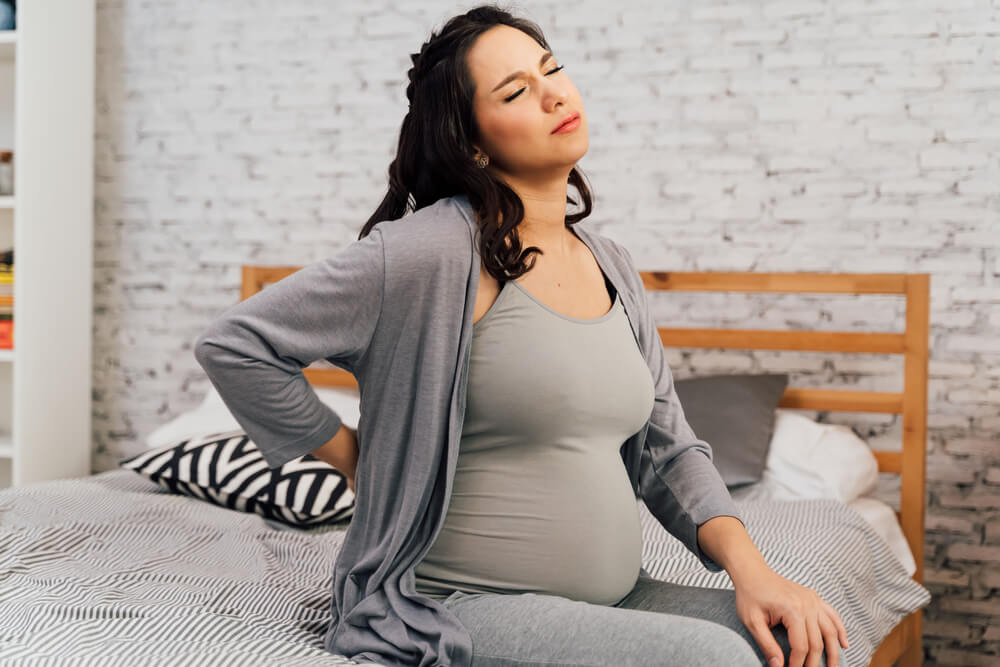
If you are asking yourselves if hemorrhoids during pregnancy are common. The answer is – yes, very common, so there is no need to worry. Almost half of pregnant women experience getting hemorrhoids. This phenomenon occurs mainly in the third trimester and up to one month after you have had your baby.
You may be more prone to being constipated during pregnancy than at any other time in your life. Numerous studies found that more than 45% of women suffer from this problem during their pregnancy. Constipation can be the result of prolonged sitting, hormonal changes, or taking iron or other supplements, so it needs to be prevented or alleviated. That is why it is recommended to include appropriate amounts of fiber and liquid and light physical activity in everyday life. On the other hand, the doctor should be consulted about safe supplements of fiber and stool softeners during pregnancy.
Symptoms
Although you can have pregnancy hemorrhoids without symptoms at all, some of the most frequent and usual symptoms include pain, itchiness, swelling, and blood in the stool. A painful visit to the toilet can recognize Hemorrhoids, blood on the paper after stool, itching, and pain in the anus area that worsens when sitting. Also, swelling or lumps may appear in the area. Hemorrhoids, in most cases, are not dangerous, do not affect the child’s health, and go away on their own after pregnancy.
Prevention
Here are some tips for preventing the formation of hemorrhoids during pregnancy in the first place.
Primarily, it is necessary for you to eat foods rich in fiber, such as fruits and vegetables, and drink enough fluids, especially water and tea.
It is also necessary to keep the stool regular. If stools are irregular, do not wait for constipation to get worse. You should consult your doctor about which nutritional supplements can be used to soften the stool and make it more regular.
Exercise is crucial! So-called Kegel exercises are recommended, improving circulation and increasing muscle tone in the pelvic floor area, especially around the anus. Thus, they reduce the possibility of enlarged hemorrhoids and also increase the tone of the muscles around the vagina and urethra, which helps to recover faster after childbirth.
Last but not least, sitting in the same position for a long time or standing for a long time is not recommended. When resting, lying on your left side is recommended, as this facilitates circulation in the lower part of the body.
Treatment
You should not ignore these problems because untreated hemorrhoids can worsen over time and cause complications. These complications could include severe pain or even anemia due to bleeding. Enlarged hemorrhoids during pregnancy can be a very unpleasant problem. If they appear, Dr. Eldredge has a couple of advice for home remedies and treatment measures, such as:
- Put the ice in the affected area a couple of times daily.
- Move around often and try not to sit too long and not to put additional pressure on the rectal area.
- Avoid straining during bowel movements, and do not sit on the toilet for a longer period.
- Do Kegel exercises with the aim of strengthening your muscles.
- Instead of lying on your back, lie on your side.
- Baths in warm water for 10 to 15 minutes several times a day also often help.
- Alternately showering the anal region with cold and warm water (not hot) or using a chamomile compress (gauze soaked in cooled chamomile tea is gently placed over the anal region) may also help.
- After you have had a stool, clean yourself with wet wipes or shower, and do not use regular toilet paper.
If these measures do not lead to improvement, it will probably be necessary to apply some of the anti-hemorrhoidal drugs, such as creams or suppositories. It is best to seek the advice of your doctor to choose suitable medication.
It should be remembered that most of these drugs should not be taken for longer than a week because they can cause even stronger inflammation. Very rarely, in exceptional cases, it is possible to surgically treat enlarged painful or bleeding hemorrhoids. Fortunately, in most women, the enlarged hemorrhoids decrease and the problems disappear after giving birth.
Do Hemorrhoids Disappear after Pregnancy?
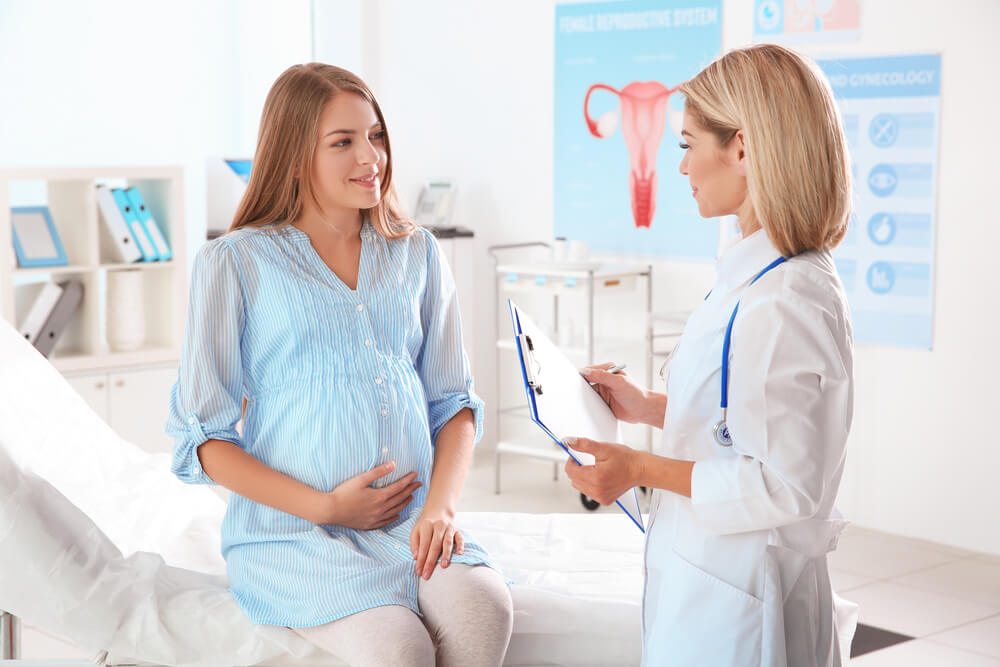
Hemorrhoids can disappear completely after pregnancy and childbirth without any treatment because hormone levels, blood volume, and intra-abdominal pressure decrease after delivery. But they will continue to cause problems in some cases, so a surgical solution may be recommended.
When Should I Contact My Doctor?
If mild home methods do not help, and the bleeding becomes increasingly painful and profuse, contact your doctor immediately; in some cases, you may need professional help. Also, be sure to consult your doctor before taking any hemorrhoid medication while pregnant. There are many hemorrhoid relief products available, and they will recommend one that will be safe for you and your baby.
If you still have questions or concerns regarding hemorrhoids and pregnancy, feel free to reach out to our practice at any time. Our trained experts are more than ready to listen and cater to your needs.
Disclaimer: This blog is for informational purposes only. If symptoms do not resolve or if they return, seek medical attention as soon as possible from your primary care physician or contact Advanced Surgical Physicians.


